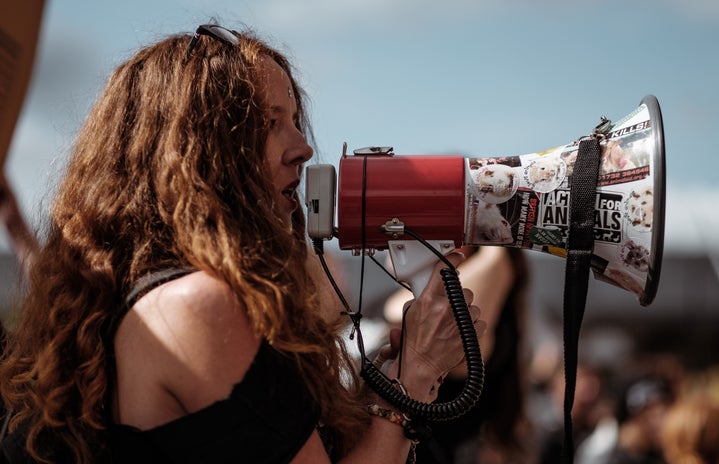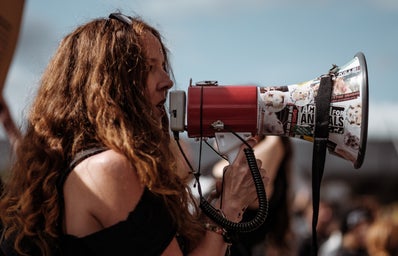TW: Mentions of rape and sexual assault
We’ve all heard of Russell Brand, the outrageous “playboy” of the noughties with his extensive vocabulary, quick wit and distinct curly brown hair. Since leaving the mainstream media, in many respects, Brand has had a ‘rebrand’. His YouTube channel (which was created to discuss COVID-19 conspiracy theories) boasts 6.66 million followers, whilst his TikTok and X account command a 2.3 million and 11.3 million following respectively.
In recent weeks however, it could be said that Brand has had a resurgence into the mainstream media. A joint investigation by The Times, The Sunday Times and Channel 4’s Dispatches has revealed multiple allegations of rape and sexual assault against the ex-comedian. Centred around the testimony of four women who wished to remain anonymous, these allegations range from 2006 to 2013.
The allegations are as follows:
- One woman alleges that Brand raped her against a wall in his residence in Los Angeles. The Times claims that it has seen medical records proving that this woman was treated in a rape crisis centre the same day.
- Another woman claims that she was a victim of sexual assault and suffered an emotionally abusive relationship with Brand whilst he was in his early 30s and she was just sixteen.
- A third woman alleges that she was silenced with legal action after being sexual assaulted by Brand when she worked with him in Los Angeles.
- A fourth woman also alleges that she was sexually assaulted by Brand, of which she claims he was physically and emotionally abusive towards her.
Since the news has been released, Brand has responded in true conspiracy theorist style. On his YouTube channel, a short video titled “So, This is Happening” Brand states that whilst he was “very, very promiscuous”, his past sexual relationships were “absolutely always consensual”. He then goes on to claim that the investigation demonstrates that there is a “a serious and concerted agenda to control my voice” before ending the clip with the phrase “stay close, stay awake, stay free.”
A brief look at the comment section indicates how well Brand knows his audience. One individual comments “These evil elites will destroy anyone who speaks the truth” whilst another states “I am sick and tired of these women trying to destroy someone’s reputation and their life”.
Russell Brand is not the first and he will not be the last.
In the Dispatches documentary, comedian Daniel Sloss came on record to state that “there were many stories with varying degrees of severity” about Brand’s behaviour in the comedy circuit. He also discloses that in WhatsApp groups, female comedians would warn each other of predatory comedians or agents and “for many, many years women have been warning each other about Russell.”
Whilst we can get lost in the arguments of whether this is an unjust ‘trial by media’ or just an exposé of Brand’s true nature, one thing is for sure – we have been here before.
Since the dawn of time, men in the limelight have been subject to allegation after allegation. In 2017 alone, Gossip Girl star Ed Westwick faced three accusations of rape by three different women and Death of Salesman actor Dustin Hoffman was accused by seven different women of sexual assault and harassment. What do they have in common? Their careers continue seemingly untarnished. Hoffman is set to voice Shifu in the newest Kung Fu Panda film next year whilst Westwick’s newest thriller “Deep Fear” was released just this month.
I can already hear the “innocent until proven guilty” brigade coming for me and in response I put to you: what about men who have faced criminal convictions? In 2009, singer Chris Brown famously pled guilty to the assault of his then girlfriend Rihanna and this year Brown released his newest EP “How We Roll” featuring high-profile R&B/pop vocalist Ciara. Since 2009, Brown has released eight successful studio albums.
The fact of the matter is, in celebrity culture, men with serious allegations and men who are criminally convicted are either passively tolerated or defended.
This leads me to my final point, what can be done to support the victims of sexual assault? According to Safeline, survivors of these traumatic experiences often undergo feelings of shame or blame themselves for what has happened. Having someone there who does not question their account can be a critical part of the healing process and can encourage them to seek professional support. Whilst it is often difficult to know what to say to help a sexual assault survivor, simply providing them with a non-judgemental space can be an invaluable part of their healing process.
Since the allegations about Brand have surfaced, the Metropolitan police have received a number of sexual assault claims in relation to the comedian. It would not be surprising if more surface in the coming weeks.
As of such, Brand has not been criminally convicted for the allegations that have been made against him. That being said, why are so many of us so quick to defend a man we do not know and most likely will never meet?
Whilst I have presented a damning case about our apologist, patriarchal culture, change is coming. Russell Brand is not the first and he will not be the last, but we must continue to hold men accountable. Our future depends on looking past the personas of seemingly likeable public figures, when real-life allegations suggest a more sinister reality.


